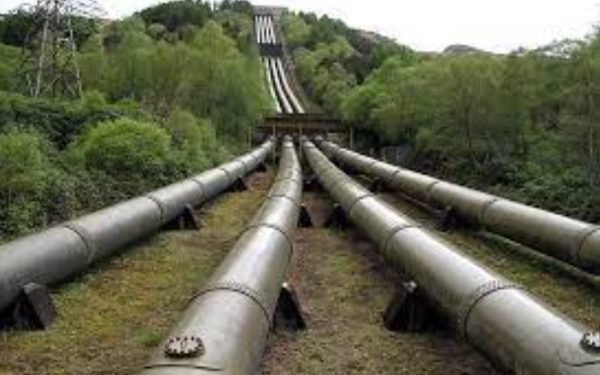This blog is about how oil production increased to 1.7 million barrels daily, says FG and why NNPCL rejects move to increase oil production to 1.8mb/d.
Nigeria is pumping 1.67 million barrels of oil and condensates per day, compared with just under a million barrels some months ago, due to security improvements in the producing Niger-Delta region, the head of the state-oil firm NNPC said on Friday. Mele Kyari, NNPC’s group chief executive, said President Bola Tinubu has “re-engineered the security approach. We’ve already seen very significant changes in our production environment.” Africa’s top oil producer recorded an average daily oil output (NGOIL=ECI), opens new tab of 1.22 million barrels per day (mbpd) in the second quarter of 2023, the National Bureau of Statistics said a week earlier.
Read: NNPC LTD. to deliver LNG to domestic and international market.
Large-scale oil theft from pipelines and wells has hobbled the country’s output and crimped exports in recent years, damaging Nigeria’s finances and leaving Tinubu with one of his biggest challenges. Tinubu, who has embarked on Nigeria’s boldest reforms in decades, scrapped a costly but popular subsidy on petrol that cost the country $10 billion last year. The central bank, under Tinubu, has also lifted foreign exchange trading restrictions.
OIL PRODUCTION NOW 1.7 MILLION BARRELS DAILY, SAYS FG
The Federal Government, on Friday, announced that Nigeria’s oil production has increased to about 1.7 million barrels per day, up from the 1.1mbpd recorded in August 2023. The Minister of State for Petroleum Resources (Oil), Heineken Lokpobiri, disclosed this in a session with journalists at his office in Abuja. He said, “We have a sole agenda and it is to increase crude oil production. Once you increase production there will be more revenue for Nigeria and that is the recipe to virtually all the problems we have in this country.
“You know that Nigeria is very dependent on oil, even our budget is always predicated on how many barrels of oil we produce. Although the non-oil sector is thriving, for us to solve our problems we need to earn enough forex.
“And substantial part of our forex comes from the oil sector. So, my ambition is to see how I can lead the sector to increase production and how we can get more revenue to be able to fund strategic national projects.
“We are already increasing production steadily. As at August it was about 1.1mbpd, but as at today it has increased to between 1.3 and 1.4mbpd exclusive of condensates, if you include condensates it will be about 1.7mbpd.”
Lokpobiri, while urging relevant stakeholders to put hands on deck to tackle challenges in the sector said he had been interacting with some of them, including the International Oil Companies and local producers. He noted that the engagement with them was already yielding results.
“We have identified where the problem is, and where we are getting the shortfall and we are already engaging them within the next few weeks, we will be able to give you how far we have gone in that direction. He said some of the solutions might not be immediate but once identified there would be provision of a good framework to address those problems. He said the government was bent on rebuilding the confidence of investors and rekindling the industry to become more competitive. Earlier, the President of the association, Victor Nnodim, reiterated the association’s readiness for collaboration and sought the minister’s support in driving his developmental agenda and moving the industry forward.

Why NNPCL rejects move to increase oil production to 1.8mb/d.
The Group Chief Executive Officer of the Nigerian National Petroleum Company Limited, Mele Kyari, rejected the move by the Senate Committee on Appropriation to increase the crude oil production benchmark in the 2024 Appropriation Bill from 1.7 million barrels per day to 1.8 mb/d. The Chairman of the Senate Committee on Appropriation, Solomon Adeola, had suggested this during the budget defence session between his committee and the management of the NNPCL.
Read: NNPC Plans Public Offer and Re-habitation of Refineries
On November 29 2023, the Federal Government in the Appropriation Bill gave an average crude oil production benchmark of 1.78mb/d and a crude oil price benchmark of $77.96. The NNPCL GCEO told the committee that the oil giant would stick to the benchmark approved by President Bola Ahmed Tinubu in the Appropriation Bill. Kyari submitted that the crude oil price and production benchmarks were based on dynamics in the global oil market. Reinforcing his stance on realistic estimates by President Tinubu, Kyari however cautioned that security challenges in the Niger Delta Region could frustrate the projections of the federal government, citing crude oil theft.
S2qqThe NNPCL GCEO told the gathering of lawmakers and journalists that illegal crude oil bunkering in the oil-producing states is alarming as he revealed that there are over 4,800 illegal connections on crude oil pipelines. He also informed the committee members that the 1.78 million barrels per day oil production for the 2024 budget, includes condensate which are 200, 000 to 300, 000 barrels per day. In his remarks at the end of the interface, the Chairman of the Committee, Senator Adeola, said Kyari has strengthened their convictions on the workability of the assumptions and projections of the 2024 budgetary proposals.

